What is Solar Panel Technology
Solar panel technology refers to the methods, materials, and equipment used in the design, development, and manufacturing of solar panels, which are devices that convert sunlight into electrical energy. These panels are essential components of photovoltaic (PV) systems, serving a wide array of applications ranging from residential and commercial setups to industrial and utility-scale solar farms. The technology behind solar panels is based on the principles of photovoltaic effect, where certain materials generate an electric current when exposed to light.
Individuals and businesses that are looking to reduce their carbon footprint, lower energy costs, or contribute to a more sustainable environment are the primary users of solar panel technology. The benefits of utilizing solar panels are numerous, including the reduction of greenhouse gas emissions, the creation of job opportunities in the burgeoning green economy, and the potential for energy independence.
The functionality of solar panel technology is relatively straightforward. A solar panel is made up of a series of solar cells that are connected to form a module. When sunlight hits the cells, it excites electrons, creating an electric current. This current can then be used to power electrical devices directly or stored in batteries for later use. The efficiency of a solar panel is determined by its conversion rate, which is the percentage of sunlight that is converted into electricity.
Types of Solar Panel Technology
The market offers several types of solar panels, each with specific characteristics tailored to different applications. Monocrystalline silicon panels are known for their high efficiency and durability, making them ideal for residential and commercial installations where space is limited but maximum power generation is desired. Polycrystalline silicon panels are slightly less efficient but are often more cost-effective, making them a popular choice for larger installations where space is not a constraint.
Thin-film solar panels are another type that boasts flexibility and lightweight construction, making them perfect for applications where weight or aesthetics are important considerations. They can be integrated into curved surfaces or mounted on mobile structures where traditional rigid panels would not be suitable.
Cadmium telluride (CdTe) panels are recognized for their impressive efficiency rates and are often used in large-scale installations in the commercial and industrial sectors. They offer a good alternative to traditional crystalline panels, especially when high power output per square foot is required.
Lastly, the newest addition to the solar panel lineup is the bifacial panel, which has the unique capability of harnessing not only direct sunlight from above but also albedo (reflected light from below). This type is particularly useful in applications where additional energy generation is possible from reflected light.
How to choose Solar Panel Technology
Selecting the right solar panel technology for your business involves considering several key factors that align with your operational needs and sustainability goals. Here's what businesses should keep in mind:
-
Application: The intended use of the solar panels—be it for a large-scale power generation plant, a remote off-grid application, or a small-scale home system—will dictate the appropriate technology type. For instance, thin-film panels may be more suitable for roofing systems due to their light weight.
-
Material: The material composition of solar panels—such as monocrystalline silicon or polycrystalline silicon—can impact their durability and efficiency. Businesses should assess their application's requirements and environmental conditions when choosing a material.
-
Mounting Type: The mounting method—ground mount or roof mounting—should be compatible with the available space and energy production needs. Ground mounts are generally more stable and offer flexibility in placement, while roof mounts may be more suitable for compact spaces.
-
Power Generation Efficiency: Different solar panel technologies have varying levels of efficiency; monocrystalline and polycrystalline silicon tend to be more efficient than thin-film options. Higher efficiency means more electricity is generated per square meter of panel space.
-
Durability: Consider the expected lifespan of the solar panels based on their material composition. Monocrystalline and polycrystalline silicon may offer longer-lasting performance compared to thin-film options.
By carefully evaluating these considerations against their specific requirements, businesses can make an informed choice about which solar panel technology will best serve their needs while contributing positively to their bottom line and environmental impact.
About Solar Panel Technology on Alibaba.com
Alibaba.com stands out as an exceptional marketplace that connects businesses with a global network of solar panel suppliers offering a wide array of products suited for any application. With its vast selection that spans all major solar panel technologies—monocrystalline, polycrystalline, and thin-film—Alibaba.com empowers businesses to find exactly what they need for their specific projects or resale purposes.
The platform's commitment to facilitating trade across borders is evident through features like mobile-friendly buying options, localized language support, order handling services, and Trade Assurance—a service that protects payments until delivery is confirmed. This focus on security and buyer satisfaction underscores Alibaba.com's dedication to quality service.
Alibaba.com's comprehensive approach to B2B sales not only simplifies procurement but also supports businesses in leveraging the growth opportunities within the renewable energy sector. With access to a diverse range of products reflecting the latest advances in solar panel technology and an emphasis on customer-centric trade solutions, Alibaba.com positions itself as an invaluable partner in global commerce.
Common FAQs for Solar Panel Technology
What are the key differences between monocrystalline and polycrystalline solar panels?
Monocrystalline solar panels are generally more efficient and have a higher energy output per square meter compared to polycrystalline panels, but they may be more expensive. Polycrystalline panels are less efficient and typically used when space is limited or budget constraints are a concern.
How do I determine the right type of solar panel for my business needs?
Identify the application for which the solar panel will be used, consider the space available, assess the climate and environmental conditions of the installation site, and evaluate the efficiency and durability of the solar panel types available.
What should I consider when it comes to the size and number of solar panels for my project?
Assess the total wattage required for your project's purpose, calculate the area available for installation, and check the efficiency and size of the solar panels to meet your specific needs.
Are there specific solar panel technologies recommended for commercial use?
For commercial use, it's important to consider technologies like thin-film solar panels or crystalline silicon panels with MPPT (Maximum Power Point Tracking) capabilities for optimal performance and efficiency.
Can I use any solar panel for a solar home system?
No, you need to select a solar panel that is compatible with the system's voltage and current requirements, as well as the physical space where it will be installed.
How do I know if a solar panel is of good quality?
Look for certifications and standards compliance, such as UL listing, and check reviews or ratings from suppliers who have purchased from them.
What is the lifespan of solar panels?
The lifespan of a solar panel varies based on its material quality, build, and how well it is maintained. Generally, high-quality solar panels can last 20 years or more.
How important is the control type in choosing a solar panel system?
The control type—whether it is PWM (Pulse Width Modulation) or MPPT (Maximum Power Point Tracking)—is important as it affects how efficiently the system can convert solar energy into usable electricity.
Can I integrate solar panels with my existing electrical infrastructure?
Yes, solar panels can be integrated with existing electrical infrastructure; however, it's essential to ensure compatibility and proper configuration for safe operation.
Is it possible to expand a solar panel system in the future?
Many solar power systems are designed to be expandable with additional panels in the future; it's advisable to plan for this during the initial installation.
What factors should I consider when choosing a mounting type for solar panels?
Consider factors such as the roof's material, its slope, and whether the system will be ground-mounted or mounted on a structure when choosing a mounting type.
What battery types are compatible with solar panel systems?
Solar panel systems can be designed to work with various battery types including lead-acid and lithium-ion batteries; compatibility should be confirmed during the system design phase.
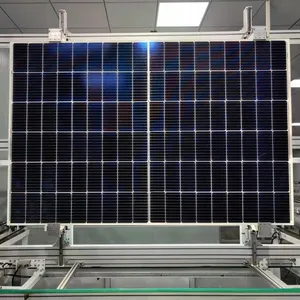
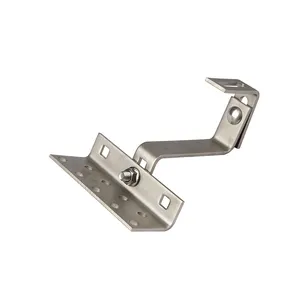





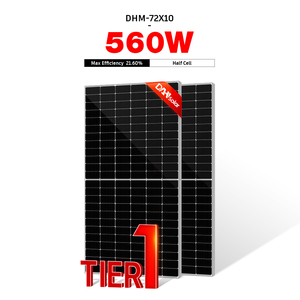

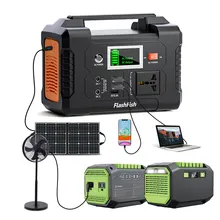




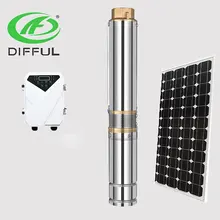



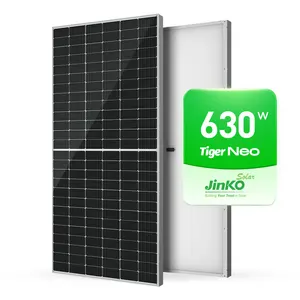
















 浙公网安备 33010002000092号
浙公网安备 33010002000092号 浙B2-20120091-4
浙B2-20120091-4